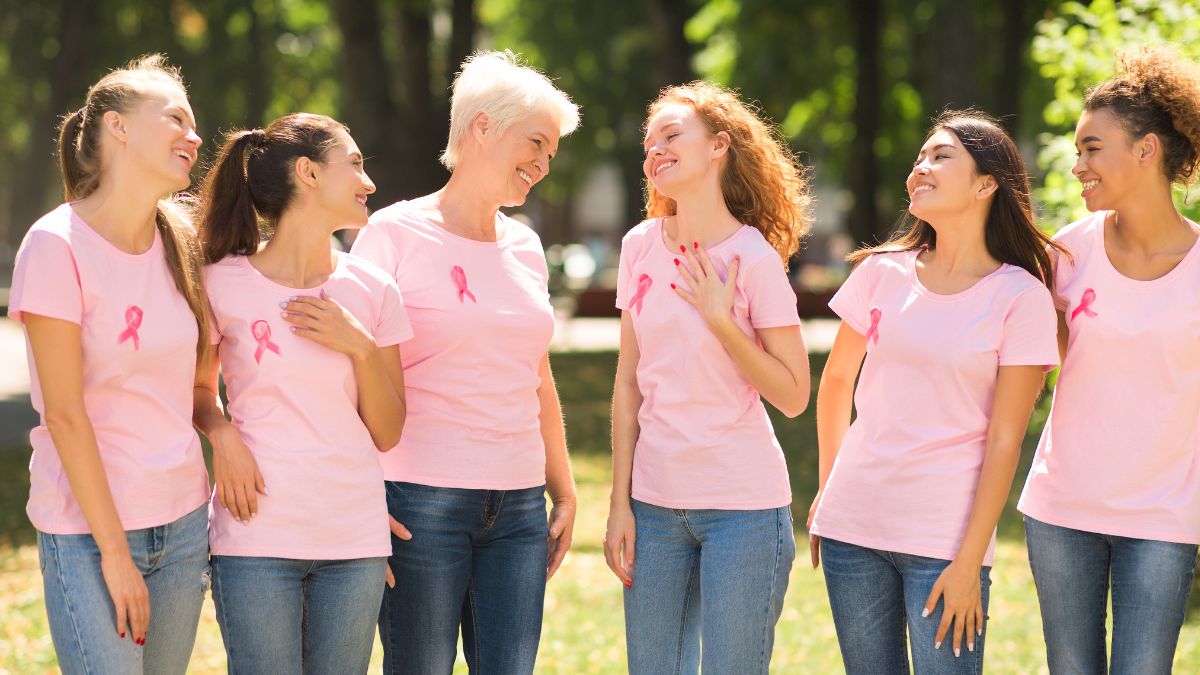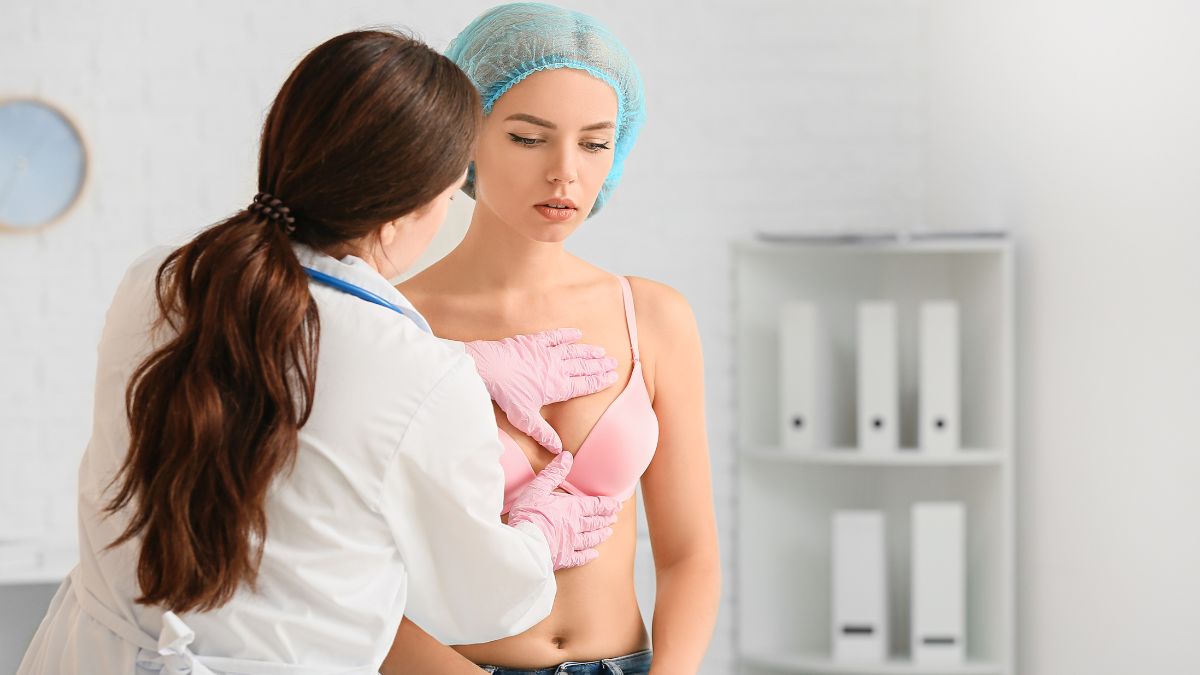- By Priyanka Munshi
- Fri, 27 Oct 2023 03:12 PM (IST)
- Source:JND
Early detection of breast cancer in women is critical for better outcomes and early management. Mammograms, clinical breast tests, and routine breast self-examinations are crucial instruments in this endeavor. Breast cancer can be detected in its early stages, when treatment is most successful, if awareness is raised and women are encouraged to check their health.
Also, advances in medical research and technology have produced more precise diagnostic instruments, such as genetic testing and 3D mammography, which offer even more accuracy in determining possible hazards. In order to identify breast cancer in all women, it is imperative that access to healthcare services, regular screenings, and education be given top priority.

Breast cancer can be detected in its early stages, when treatment is most successful, if awareness is raised and women are encouraged to check their health. (Image Credit: Canva)
Dr. Pramod Kumar Julka, the Vice Chairman of Cancer Care at Max Institute of Cancer Care at Lajpat Nagar, exclusively told Jagran English about what are the early tips to detect breast Ccancer?
Also Read: Diwali 2023: Top 5 Most Recommended Places To Visit This Festive Season
Dr. Pramod said, "breast cancer cases account for almost one-fourth of all cancer cases in women in India. A higher proportion of our patients are younger than 40 years of age, and a vast majority (almost 60%) are present in stage 3 or 4 of the disease. Furthermore, studies have reported much higher rates (30%, approximately) of triple-negative breast cancer (a type with an inferior outcome compared to other types) in the Indian population. All these factors, together, adversely affect the treatment outcomes of our breast cancer patients. In India, we have the expertise and capability to offer the best recommended cancer treatment to our patients."
He also said,"we now have not only newer chemotherapy and hormone therapy to treat breast cancer but also targeted treatments such as monoclonal antibodies, antibody-drug conjugates, CDK inhibitors, and immunotherapy. The surgeries are less mutilating now. Radiotherapy machines and techniques can deliver radiotherapy safely now. Breast cancer treatment is a team effort. We are all at some risk of getting breast cancer. But there is also a lot that one can do as an individual to reduce their risk of developing breast cancer. Of course, there are some risk factors that are not modifiable and hence cannot be changed, such as gender, faulty genes, family history of cancer, aging, personal history of breast cancer or proliferative breast disease, ethnicity, etc.
However, one can modify their risk by adopting some lifestyle-related changes. Follow these simple suggestions to reduce your risk of getting breast cancer."
• Maintain a healthy weight throughout life by adopting a healthy diet and undertaking regular exercise. Undertake at least 150 minutes of moderate physical activity spread over a week.
• Avoid the intake of alcohol.
• Breastfeed your newborn for a year or longer.
• Avoid hormone replacement therapy. Take advantage of non-hormonal alternatives to manage menopausal symptoms.
• Avoid unnecessary exposure to radiation.
• Don’t smoke.
• Be aware of your breasts so that you can pick up any changes quickly.
• Make cancer screening a part of your life.

Mammograms, clinical breast tests, and routine breast self-examinations are crucial instruments in this endeavor. (Image Credit: Canva)
Dr. Pramod added,"if someone has a positive family history of breast, ovarian, or other cancers, there is still a lot to do to decrease the chances of getting this disease in one’s lifetime. Such a person must consult a doctor. Your doctor could then discuss with you various ways that might help lower your chances of developing breast cancer and also detect it early. Some of these ways could be."
Also Read: Why You Must Drink Warm Water? Do You Know About These 5 Benefits
• Genetic counseling and testing for finding the genetic mutation (such as BRCA 1 and 2, TP53, CHEK2, PTEN, etc.)
• Medicines such as Tamoxifen or Raloxifene to lower breast cancer risk
• Preventive (prophylactic) surgery to remove breasts and/or ovaries
• Close observation and screening (MRI, mammogram) to look for early signs of breast cancer
At last, he said,"thus, with simple modifications in our lifestyle and by increasing our awareness about this disease entity, together we can achieve a lot in terms of risk reduction for breast cancer. Stay calm, stay positive, and never lose hope."

